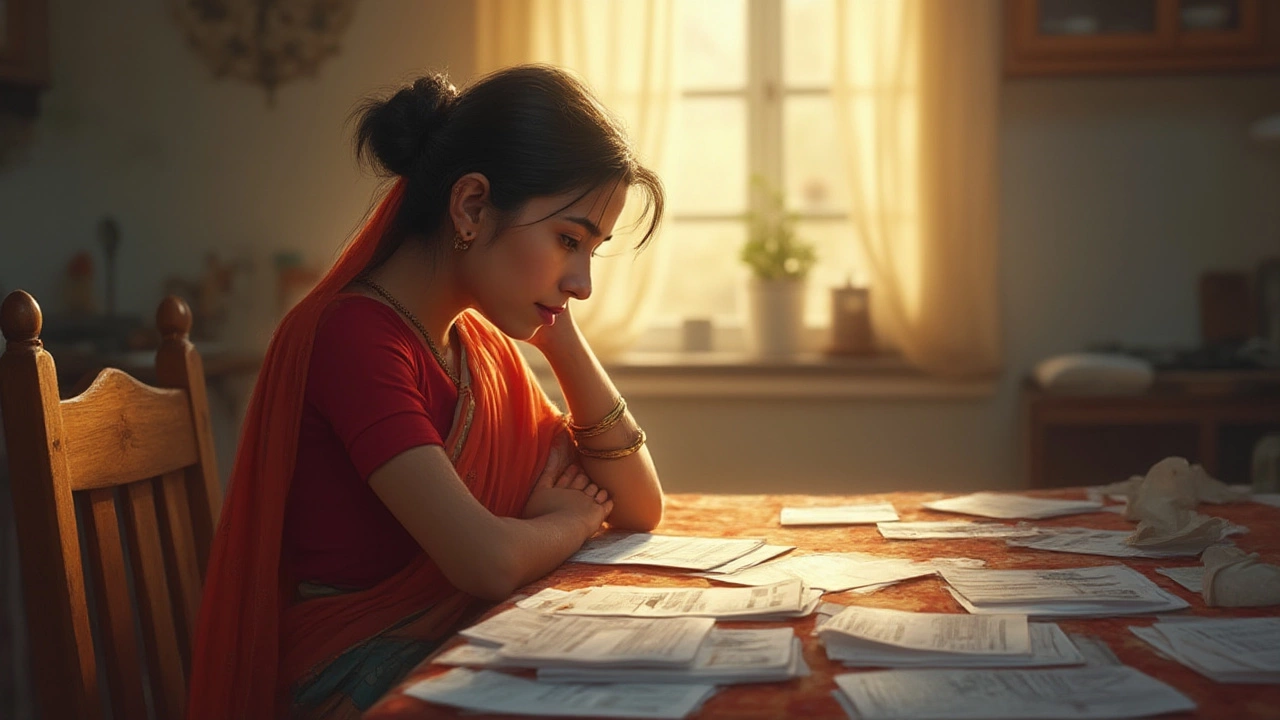Who Loses in Divorce? Real Risks and Simple Ways to Guard Your Interests
If you’re reading this, you’re probably wondering what you could lose if your marriage ends. It’s a scary question, but getting clear answers helps you plan better. In India, divorce can change lives fast – money, property, kids, and even emotional stability. Let’s break down the biggest things that can slip away and what you can do right now to keep them safe.
Money and Property: The First Line of Loss
Most people think the biggest hit is the bank account, and they’re right. Courts look at the assets you both own – house, car, savings, investments – and split them according to the Hindu Marriage Act or the specific personal law that applies. If you’re the higher earner, you might end up paying more, especially if the other spouse has no income.
Tip: Start documenting every asset now. Keep a spreadsheet of property values, loan balances, and joint accounts. The clearer the record, the easier it is to argue for a fair split.
Children and Custody: More Than Just a Legal Issue
Kids are the most sensitive part of any divorce. The court’s primary goal is their welfare, not your wishes. You could lose sole custody, get limited visitation, or be required to pay child support. That doesn’t mean you’re a bad parent – it just reflects the law’s focus on stability.
Practical step: Keep a log of your involvement in your child’s daily life – school meetings, doctor visits, extracurricular activities. Showing consistent, caring involvement strengthens your case for shared or primary custody.
Beyond the court, emotional loss can feel bigger than any financial hit. It’s normal to grieve the change in family dynamics. Talking to a counsellor or a trusted friend can keep the stress from clouding your decisions.
Other Hidden Losses You Might Overlook
Divorce can also affect:
- Retirement savings: If you have a joint EPF or pension, the balance may be divided.
- Tax benefits: You’ll lose deductions tied to a married filing status.
- Social ties: Friends and relatives often pick sides, which can feel isolating.
Address each of these early. For retirement, request a statement and discuss how the split will be calculated. For taxes, consult a chartered accountant to see how your filing status changes. And for social circles, be honest about your feelings – people respect openness.
How to Reduce What You Lose
1. Get a good lawyer early. A family law expert knows the local court’s patterns and can advise on settlement options before you reach a courtroom.
2. Consider mediation. It’s cheaper, faster, and you keep more control over the outcome. Many couples settle property and child plans in a few sessions.
3. Document everything. From emails about financial decisions to receipts for child expenses, proof is power.
4. Stay calm. Anger leads to bad decisions. Take breaks, breathe, and keep the focus on long‑term stability rather than short‑term wins.
Remember, losing something in divorce doesn’t mean you’re doomed. The law aims for fairness, not punishment. By being organized, getting professional help, and staying level‑headed, you can protect most of what matters to you.
Ready to take the next step? Start by listing your assets, noting your child‑care contributions, and reaching out to a qualified family lawyer. The sooner you act, the more you control the outcome.
Who Gets Hurt Most in a Divorce? Surprising Truths About Divorce Outcomes
Who actually loses most in a divorce? Dive into the facts on finances, kids, mental health, and real-world tips for anyone facing a split.
